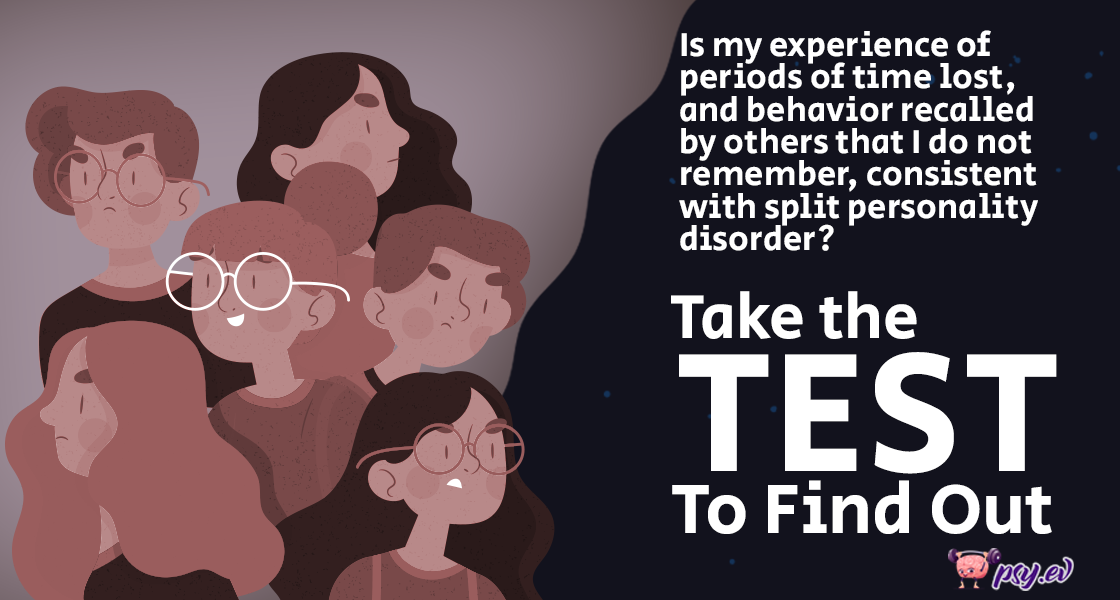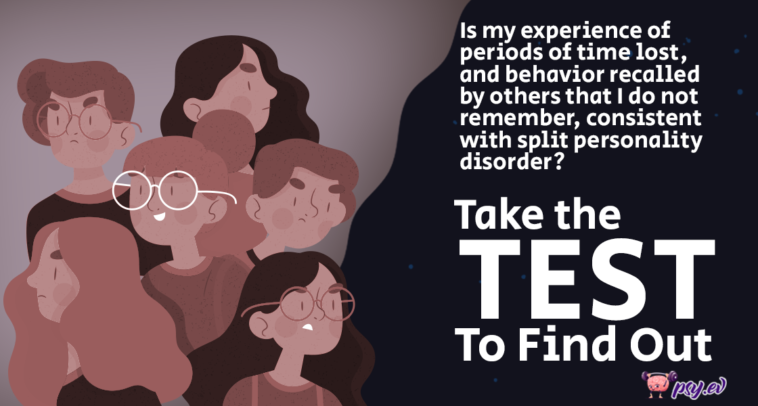The split personality disorder test is designed to assess split personality disorder symptoms. If the results show that you have split personality disorder, go to a professional for an evaluation. With the help of treatments and a strong support system, you can help manage it. Ensure your loved ones, friends, and medical experts know about and understand your disorder.
A medical professional will examine your symptoms and medical background. They may also do testing to rule out underlying medical explanations for your symptoms, such as brain tumors or head traumas.
Causes and Signs of Split Personality Disorder
Split personality disorder affects many people. Split personality disorder patients have two or more distinct identities. At certain times, these personalities are in charge of their actions. Every identity has a unique personal history, character characteristics, and preferences.
The person's primary personality makes up their "core" identity. The person's several other personas are referred to as "alters." Alters frequently differ greatly from one another. The identities can have different gender, hobbies, interests, and interactions with their surroundings.
Memory lapses and hallucinations can be caused by split personality disorder. These conditions damage a person's capacity to relate to reality.
You can have dissociative identity disorder in many aspects of your life. It may occasionally make it impossible for the affected person to work or form connections. However, seeking treatment via counseling and other social support systems can lessen or even stop dissociative episodes completely.
There are different causes for split personality disorder, for instance, childhood sexual or physical trauma. Individuals involved in a war or other stressful occurrences, such as a natural disaster, can also get split personality disorder.
Split personality disorder symptoms frequently appear in childhood. The signals could go unnoticed by parents or caretakers. It could be mistaken for other behavioral or academic issues prevalent in kids, such as attention deficit hyperactivity disorder (ADHD).
What’s Next?
The test will help you recognize the symptoms, leading to a proper diagnosis. Depression and anxiety are two split personality disorder symptoms that some medicines may assist with.
As a dissociative disorder, it requires therapy to explore and resolve previously painful events, which may be difficult and challenging.
Therapy can aid individuals in controlling their actions and lowering the frequency of identity switches. People with split personalities can get assistance from medical professionals, family members, and friends. Look for a therapist with experience or specialized training working with traumatized people.
Treatment might also aid in finding the causes of personality or identity changes. Stress or substance addiction is a frequent trigger for such individuals. Managing stress and abstaining from drugs and alcohol may help you experience behavioral changes less frequently.
Your therapist will seek to identify the root of your disorder and develop new coping mechanisms for trying situations. Over time, your therapist could support you in talking more openly about the trauma you went through, but usually only when you have the necessary coping mechanisms and rapport with your therapist.
All of this begins with a diagnosis first. If you suspect that you have split personality disorder, take this test to confirm. Similarly, if someone you know shows the signs discussed above, you can take this test on their behalf. Remember, only a specialist can confirm the diagnosis.


